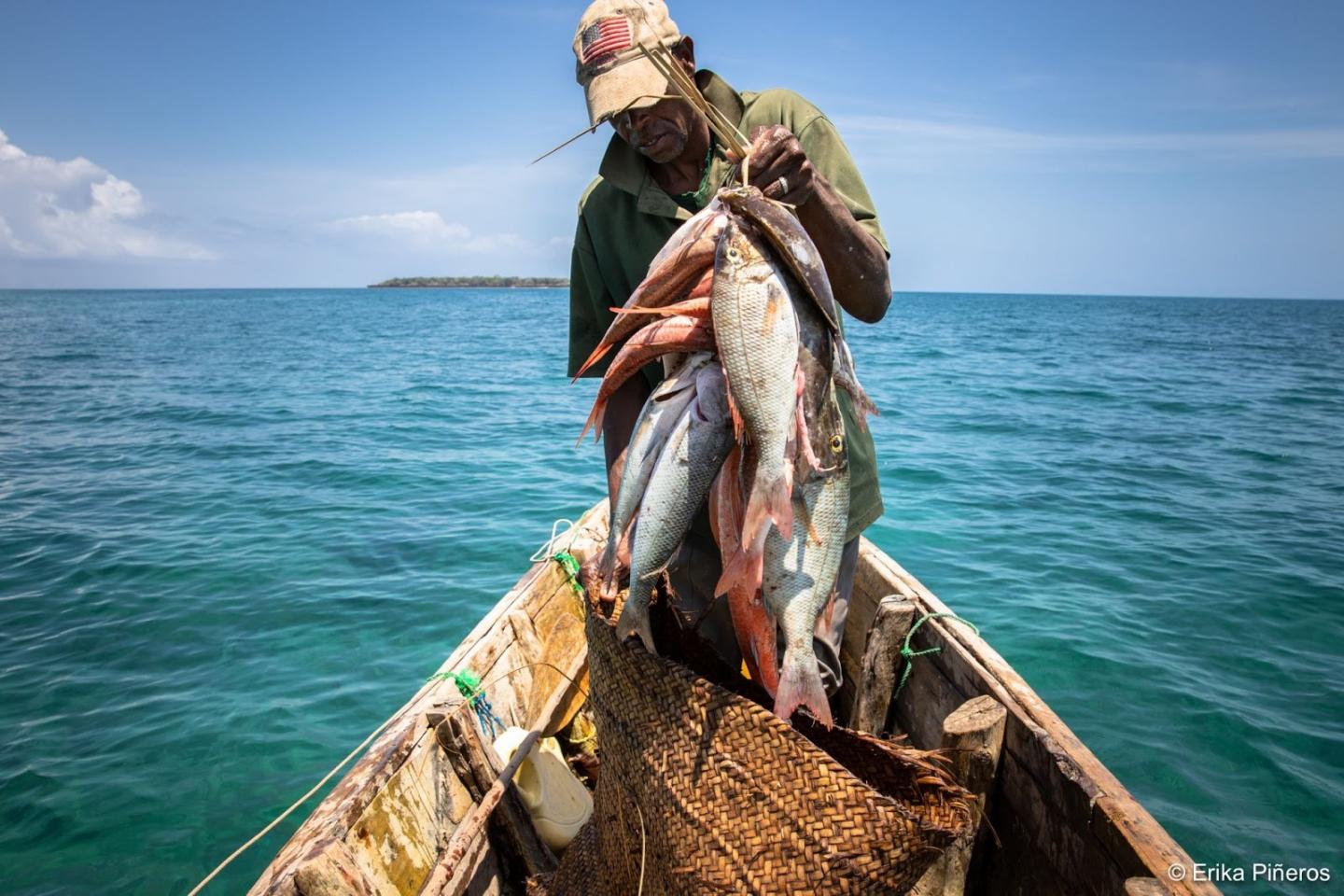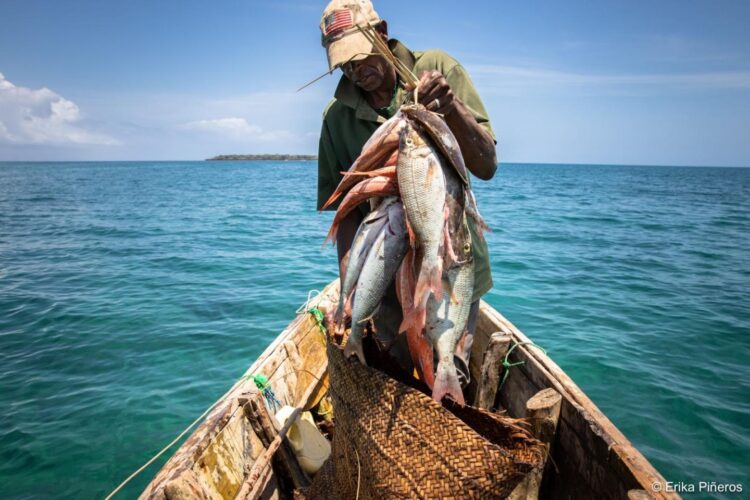Findings support global “30 by 30” goal of protecting 30 percent of the ocean by 2030

Credit: © Erika Piñeros, for WCS
New York, NY (May 4, 2021) – A powerful, long-term study from WCS adds scientific backing for global calls for conserving 30 percent of the world’s ocean. The studied no-take marine protected areas (MPAs) increased the growth of fish populations by 42 percent when fishing was unsustainable in surrounding areas, achieving the benefits of stable and high production of fish populations for fishers, while protecting threatened ecosystems.
The study recorded fish catches for 24-years across a dozen fish landing sites within two counties in Kenya, which allowed scientists to evaluate the long-term impacts of two different fisheries management methods. While one county utilized a no-take MPA covering 30 percent of the fishery, the other focused on gear restrictions and prohibited the use of small-mesh nets.
The differences in outcomes for the fishers and the ecosystems were stark. Per-person daily catches rose 25 times faster near the no-take MPA than in fished areas with gear restrictions, showing that no-take MPAs were far more effective at sustaining stocks of fish than restricting destructive gear.
The study’s lead author Dr. Tim McClanahan, Senior Coral Reef Scientist for WCS said “The no-take area in Mombasa occupied 30 percent of the studied fishing grounds. Fortuitously, this is the target for protection being proposed for the oceans, which is rarely tested and based on the results of simulation models. The empirical support for the models and the conservation proposal is reassuring along with the unexpected results of increased production of fish populations that compensated for the lost fishing area. This adds to the evidence that no-take protected areas of sufficient coverage may compensate for the lost fishing grounds, particularly when fisheries are not sustainably fished.”
This new study from WCS represents the longest-ever continuous detailed fish catch record for coral reefs, and reveals patterns that took nearly 20 years to unfold due to the small annual increments of change. The time and resources it takes to complete these empirical studies has long been an impediment to testing the effectiveness of no-take MPAs on fisheries, and is also why simulation models were commonly used. Until this publication, most existing empirical studies were short-term and focused on the catch per fisher rather than the catch per area, which is a critical metric of sustainable yield estimates. Consequently, there is a compelling need to expand long-term studies to better calibrate and test fisheries production models.
This study shows that MPAs where no-take rules are followed can compensate for lost fishing grounds and stocks and therefore help people highly dependent on fish for income and nutritional security that is lost when catches are unsustainable. While gear restrictions did have positive benefits for short periods of time, they did not maximize fisheries production over the long-term. Some combination of closure and gear restrictions are therefore likely needed to achieve the full benefits to both fishers and ecosystems.
###
The study was led by WCS Senior Conservation Scientist Tim McClanahan and will appear in Volume 128 of the journal Marine Policy. The work was supported by Bloomberg Philanthropies, The Tiffany & Co. Foundation, and the John D. and Catherine T. MacArthur Foundation.
WCS (Wildlife Conservation Society)
MISSION: WCS saves wildlife and wild places worldwide through science, conservation action, education, and inspiring people to value nature. To achieve our mission, WCS, based at the Bronx Zoo, harnesses the power of its Global Conservation Program in nearly 60 nations and in all the world’s oceans and its five wildlife parks in New York City, visited by 4 million people annually. WCS combines its expertise in the field, zoos, and aquarium to achieve its conservation mission.
This year at CBD CoP15, the Parties to the Convention on Biological Diversity (CBD) will adopt a post-2020 global biodiversity framework, and set shared goals and action-oriented targets to provide the momentum for conservation action at multiple scales. This is a critical policy moment to improve global goals and targets related to coral reefs, including their clarity and the indicators to be used to measure progress, to drive conservation action that effectively conserves coral reef biodiversity and ensures socio-economic benefits at relevant scales. WCS supports the global efforts to ensure that CBD Parties commit to protecting or conserving least 30% of land and sea areas by 2030 through area-based conservation measures, read more about our recommendations here.
For more than 70 years WCS has been on and underwater studying coral reefs. Today there is a global crisis for coral reefs facing pressures from climate change, pollution, unsustainable tourism, and destructive fishing. From Kenya to Belize, Mozambique to Cuba, WCS is conserving reef biodiversity hotspots and supporting communities that depend on reefs to survive. We currently work across 16 countries to protect coral reefs and ensure that they continue to provide for the people and species that rely on them.
Visit: newsroom.wcs.org Follow: @WCSNewsroom. For more information: +1 347-840-1242.
Media Contact
Stephen Sautner
[email protected]
Original Source
https:/
Related Journal Article
http://dx.





